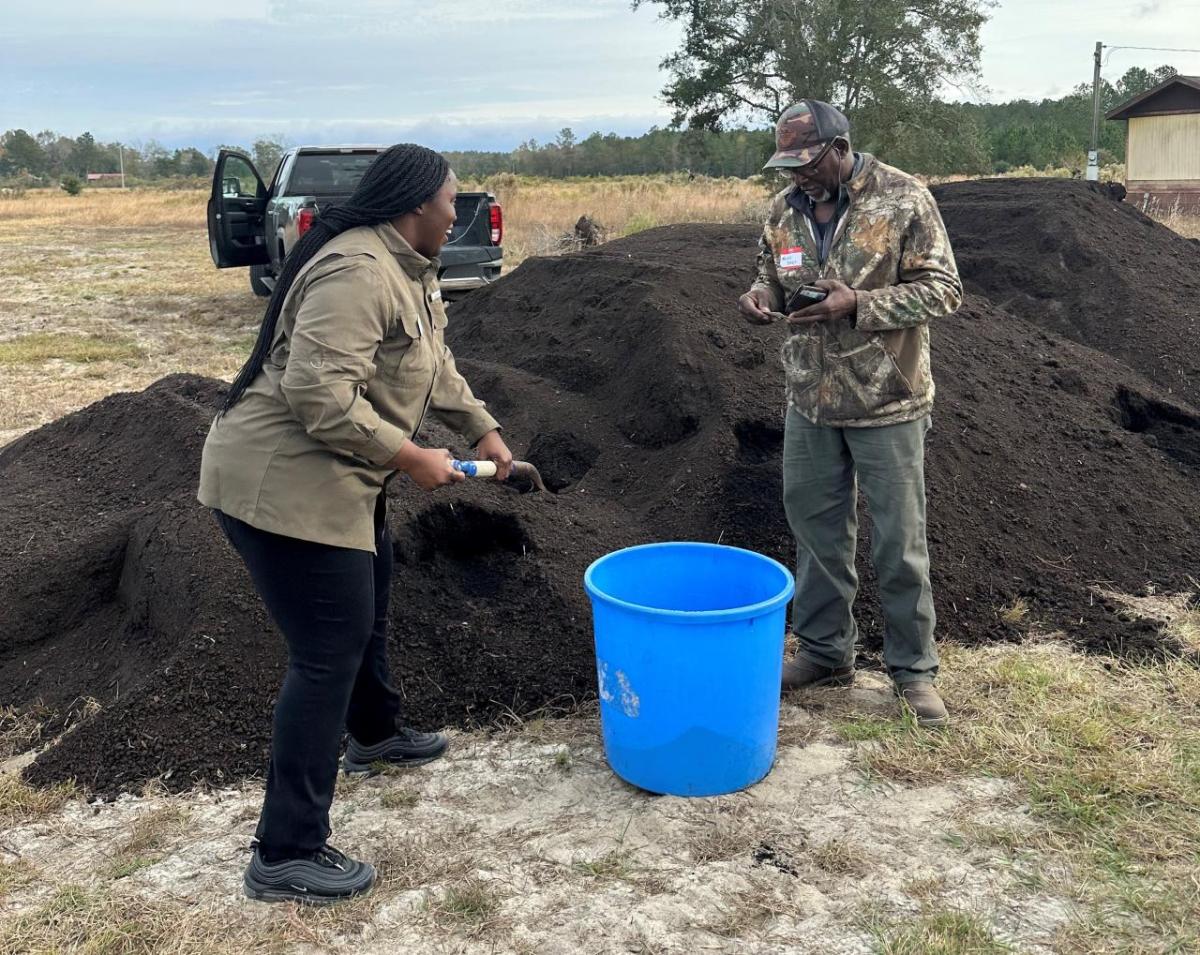Five Climate Justice Initiatives Receive $1M in New Grant Funding From Drawdown Georgia
2025-26 Climate Solutions & Equity Grants Advance Climate Solutions that Prioritize Equity in Georgia

December 4, 2024 /3BL/ - Five Georgia nonprofit climate justice initiatives have been awarded a total of $1 million in funding for programs that advance climate solutions and prioritize equity based on the framework of Drawdown Georgia’s climate solutions. This year marks the third cohort of grant recipients; to date, a total of $3.2 million has been awarded to projects that are scaling climate solutions with an emphasis on equity across the state.
“All of us are impacted by climate change--but that doesn’t mean we all experience those impacts equally,” said John Lanier, executive director of the Ray C. Anderson Foundation, one of six family foundations who are funding the 2025-26 grants. “The funding partners behind the Drawdown Georgia Climate Solutions & Equity Grants seek to help nonprofits across the state achieve this ultimate goal.”
Additional funders include The Ghanta Family Foundation, The Reilly Family Fund, The Tull Charitable Foundation, The Wilbur & Hilda Glenn Family Foundation, and one anonymous donor.
Launched in 2022, the Climate Solutions & Equity Grants empower BIPOC communities across Georgia to grow partnerships and programs that bring those who are most vulnerable to the impacts of climate to the table to lead, and benefit from, outcomes like new jobs, neighborhood investments, environmental benefits, and improved public health. The focus of the Climate Solutions & Equity Grants is on advancing specific climate solutions, including: Climate-Smart Agriculture, Energy Efficiency, Plant-Based Diets, Rooftop Solar, and Tree Planting.
Announcing the 2025-2026 Climate Solutions and Equity Grantees
After reviewing almost 100 submissions, Drawdown Georgia announces that five, two-year grants of $100,000 per year will be awarded to fund the following projects from 2025-2026:
Georgia Organics and McIntosh S.E.E.D. Growing Climate-Smart Agriculture
Georgia Organics (GO) and McIntosh Sustainable, Environmental and Economic Development (McIntosh S.E.E.D.) were part of the first Climate Solutions & Equity Grant cohort in 2023-24. This year’s grant extends the Climate Smart Farmer Cohort to at least 15 additional farmers within a 30–60-mile radius of Coastal Georgia, a continuation of the pilot project to prepare and support Black farmers in Coastal Georgia with adaptation and mitigation tools to build resilience and maintain productivity in the face of climate change.
Georgia WAND Education Fund Scaling Energy Efficiency for Seniors
Georgia WAND Education Fund and two of their existing partners, Concerned Citizens of Shell Bluff Community and BeSMART Home Solutions, will work to extend energy assistance services to residents in rural Burke County, Georgia. These residents are some of the state's most vulnerable populations, with a high percentage of senior citizens living in aging housing stock.
In the first year, the grant partners will introduce weatherization programs, educate residents on the economic and social benefits of energy-efficient retrofits, identify target neighborhoods, and conduct comprehensive energy audits.
Harambee House Building Food Sovereignty with Climate-Smart Agriculture
The Harambee House Community Farm Project will put grant funds to work expanding existing community gardens in the Woodville and Hudson Hill communities in West Savannah. Gardens will be paired with small local farms to increase capacity and provide the support necessary to distribute nutritionally dense produce throughout historically underserved communities. The preparation, cultivation, processing, and distribution of all produce will be done within the guidelines of regenerative, climate-smart agricultural practices to achieve the overall goal of nutritionally rich and healthy food sovereignty.
Thomasville Community Development Corporation Improving Health for Seniors
Grant funds will be used to scale existing work in the historic Dewey City neighborhood in Southwest Georgia focused on decreasing the energy cost burdens for residents in 52 senior apartments while improving the health outcomes of hundreds in the surrounding community, which is currently designated as a "food desert." Thomasville Community Development Corporation (TCDC) will work with the owner of Marathon Market, a nearby Black-owned food market, to implement a neighborhood plant-based food program. TCDC seeks to subsidize produce boxes, prepared meals, and plant-based education programs for neighborhood residents, sourcing the produce from local Black farmers.
Green Team of English Avenue Addressing Energy Burdens (h3)
The Westside Passive Cooling Tree Equity Partnership and Project will establish a community-driven model to address the impact of tree removal on the energy efficiency of residential buildings within the Westside Lead Superfund Site in Atlanta. The Green Team of English Avenue is partnering with the Climate Consortium of the Commons and Carinalis Consulting to assess the impact of trees removed within the Site on residential energy efficiency and thermal comfort of residents. The ultimate goal is to develop a replicable, scalable model that can be applied to additional homes in English Avenue, and in other Superfund sites within Georgia, and beyond.
About Drawdown Georgia
Drawdown Georgia is a statewide research-based initiative launched in 2020 that was born from a multi-university collaboration, funded by the Ray C. Anderson Foundation. Taking inspiration from Project Drawdown®, the world’s leading resource for taking action on climate change, Drawdown Georgia localized that work by identifying the 20 highest-impact solutions for reducing greenhouse gas emissions in our state over the next decade.
This framework focuses on climate solutions in five sectors: transportation, buildings & materials, food & agriculture, electricity, and land sinks. It considers how these solutions can reduce emissions and advance “beyond carbon” priorities, including equity, economic development, public health, and nurturing the larger environment.
Drawdown Georgia has grown into a “leader-full” movement, bringing together many organizations, universities, companies, leaders, and funders who are working to advance climate solutions in Georgia, including members of the Drawdown Georgia Business Compact, Drawdown Georgia Congregations, and Drawdown Georgia Higher Education. Learn more at drawdownga.org

